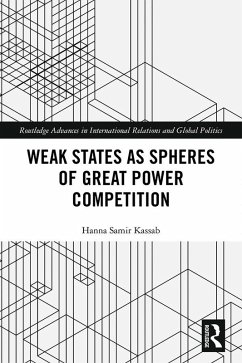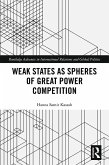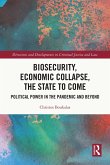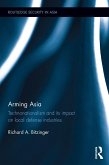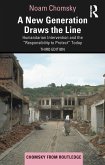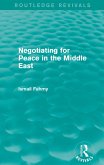Dieser Download kann aus rechtlichen Gründen nur mit Rechnungsadresse in A, B, BG, CY, CZ, D, DK, EW, E, FIN, F, GR, HR, H, IRL, I, LT, L, LR, M, NL, PL, P, R, S, SLO, SK ausgeliefert werden.
"Hanna Kassab is a prolific young scholar whose already long list of past publications deals with some of the most important challenges facing the world community: corruption, organized crime, drugs, energy, weak states in the international system, and other issues. All of these works provide important insights into extremely important concerns. Weak States and Spheres of Great Power Competition, which builds on much of Kassab's past research, presents an important, comprehensive and region-by-region, examination of a major issue of the international system - great power competition for influence in weak states." - Roger E. Kanet, Professor Emeritus of Political Science at both The University of Illinois at Urbana-Champaign and the University of Miami, USA
"The book exposes the tensions of great power politics in the context of weak states, which lack significant influence but emerge an important factor in the 21st-century global politics. It compellingly draws our attention to events at small places, and their potential to shape great power politics." - Debidatta Aurobinda Mahapatra, University of Central Florida, USA
"Hanna Kassab's book takes into consideration not only the current geopolitical situation that shifted from bipolarity to unipolarity, and then to the current multipolarity, but it also offers its own solution of how to maintain the international system's balance of power. The author argues that International Relations scholars and analysts should focus on state and non-state actors, since the latter have already become key players in world politics. For this line of reasoning to be taken as an innovative approach, we should remember that structural realists would always focus on major powers to explain the international system's balance of power. However, with globalization, small states and non-state actors, including terrorist organizations, there have proven to be game changers. And by relating the politics of weak states and violent non-state actors to major powers' behaviour, this monograph offers a fresh approach to how to explain the current situation with violent conflicts around the globe and how to change the trajectory of war by analysing the significance of small states as well as non-state actors' foreign policy choices." - Lilia Arakelyan, Florida International University, USA and Consultant for the United Nations Development Programme

